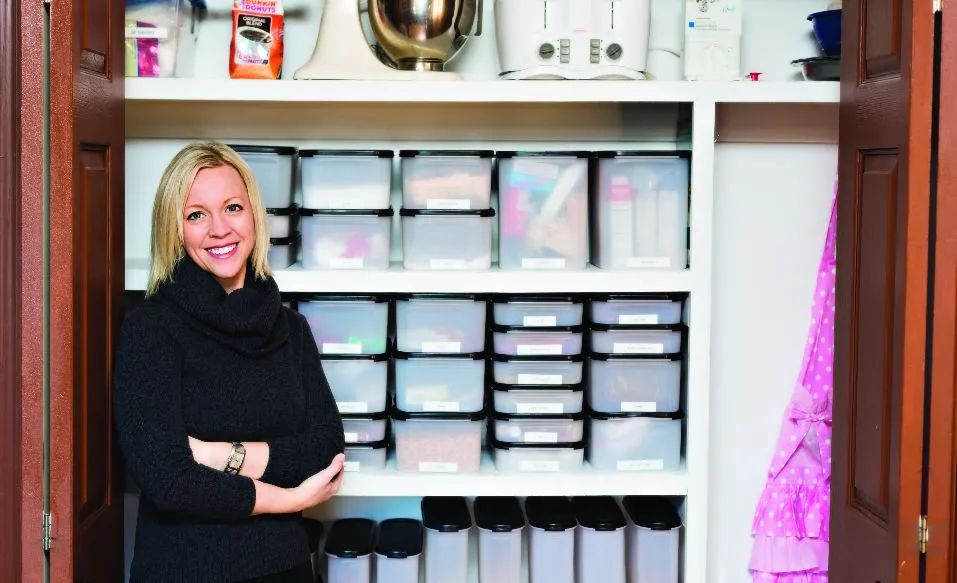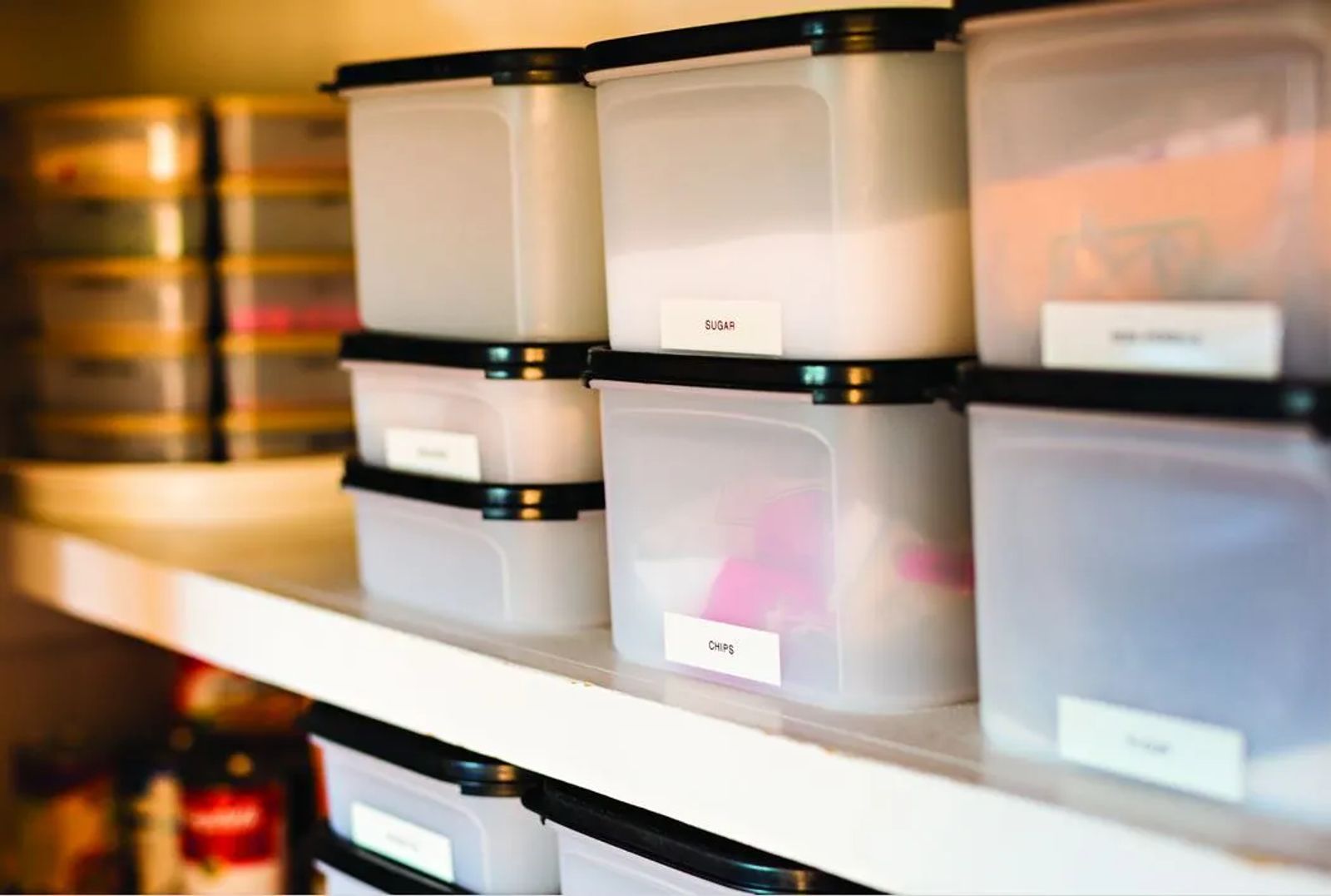
Clearing Out the Clutter!
Living a worthwhile (and organized) lifestyle
Spring will be here before we know it and with it comes the time to face the dust bunnies, drag the junk out of the trunk and get your clutter under control. But where and how to begin?
As the relatively new concepts of hoarding and de-cluttering have meandered their way into our mainstream consciousness in recent years, there are more solutions and clever ideas out there than ever before to help us get a handle on the mess before it becomes a mass.
Sherry Ross of Simply Organized in Billings is a pro at tackling someone else’s messy and disorganized spaces. In fact, she thrives on it and always has.
Be an example for the next generation
“My mom is crazy organized.” Sherry credits genetics for her due diligence in being and staying de-cluttered. “I realized very young that there was less chaos and stress if I was organized. My mornings were relaxing if I picked out my clothes and packed my backpack the night before. I made to-do lists before I could write!”
So it really does begin at home, literally and figuratively, setting an example for your children. Sherry utilizes a bin system for sorting and labeling items. Her own kitchen and bathrooms – including the kids’ bathroom (i.e., different "zones") – are stacked floor-to-ceiling with labeled see-through bins, including a designated area for junk.
Finding container systems in Billings has proven a challenge for Sherry, who hails from Minneapolis. “This is a really small town,” she says. “We don’t have Container Stores and IKEAS so you have to be creative in Billings to come up with solutions, especially if you’re on a tight budget.”
One thing is for sure: There are no cookie cutter solutions for getting organized. Whether it’s utilizing stylish see-through, stackable bins with fitted, snap-on tops, or used coffee cans you decorate with a handmade sleeve, the point is to get started.
“Every job is so different,” Sherry says of her organizing business. “Be it high-end, or be it creative with recycled items, it’s so tailored to the client. Some of them are adamant that they have hot pink containers with orange polka dots. They know exactly what they want. And, some people don’t care. They want me to reuse cardboard boxes in the basement.”
No matter what the container looks like, Sherry says it"s just important to find an organizing system that works.

Living with less to gain more
The tangibles you hang on to and stockpile and allow to take over create a ripple effect in the brain, psychologists point out. Those who are organized find themselves with invaluable wealth in the most important areas of life. They enjoyquality time instead of taking an entire weekend to clean and find things. They have more energy, less stress and less conflict among family members. They are less attached to "stuff." They worry less over last-minute company and have less anxiety.
Choose to live a worthwhile lifestyle
Above all, living an organized, clutter-free life is a lifestyle choice. De-cluttering should not be a one-time, or even yearly colossal family event where precious quality time is spent in a garage in the middle of summer. As Sherry Ross says, being and staying organized is going one step further. It is a lifestyle choice.
“It’s not easy,” she says. “It’s like choosing to be healthy. You may need help to get started. That’s what I do for organization. My clients are anyone who can admit they need a second opinion to get started, and can let go of old items.”
By helping folks stay organized, Sherry has started to pinpoint some common ways people fall short when it comes to keeping clutter at bay. One of the biggest downfalls is not having a space designated for a specific item. Not being able to get rid of old things and not realizing that the system you have simply doesn"t work, are two other shortcomings.
So, what"s Sherry"s solution? It"s simple. Pick a part of the house you want to organize (doing this in steps or phases makes it seem less overwhelming). Dump everything out on the floor, sort the items, find homes for each item and if need be, allow yourself to have one "stuff or junk" spot. Why? Because life happens! Once you have your spaces organized, make a date on the calendar to check back and make sure you"re keeping it organized.
"When your hair needs a cut, color, styling, and wash – you schedule that," Sherry says. "You schedule doctors, pedicures, shopping, cleaning, and sports activities. You HAVE to schedule organizing too.”
After that, this organizational expert says the challenge is to consciously maintain it and just keep plugging away on it a little bit every day.
Conquering the Chaos
What is the best way to get organized?
Designate three piles
Walk into your space armed with three trash bags or boxes. One pile is for things you’re keeping, another is the throw-away pile and the third pile is for donations.
Remember the classic clutter rule
If you haven’t used it or worn it in however much time, toss it. Choose an amount of time that is comfortable for you, whether it is 6 months or 2 years, and stick with it.
Go digital
Time to go paperless as much as you can. Here are some items to permanently send off into cyberspace:
- Important documents
- CDs
- Old VHS tapes (with a cable and some free time you can archive these on your computer or in an on-line storage account)
- Photos & home videos
- Recipes
One step at a time
Organize one drawer at a time, one shelf at a time and one room at a time. Baby steps will go a long way in the long-term to avoid getting overwhelmed and getting sidetracked by trying to tackle too much at one time.
Separate the sentimental from the over-emotional
Grandma’s outdated and chipped vase should be donated; the kids’ finger-painted handprints can be framed and proudly displayed.
COLD HARD FACTS ABOUT CLUTTER
- The U.S. Department of Energy reports that one-quarter of people with two-car garages have so much stuff in them that they can’t park a car.
- The average American spends one year of his or her life looking for lost items.
- 1 in 11 American households rents a self-storage space and they spend over $1000 a year in rent.










